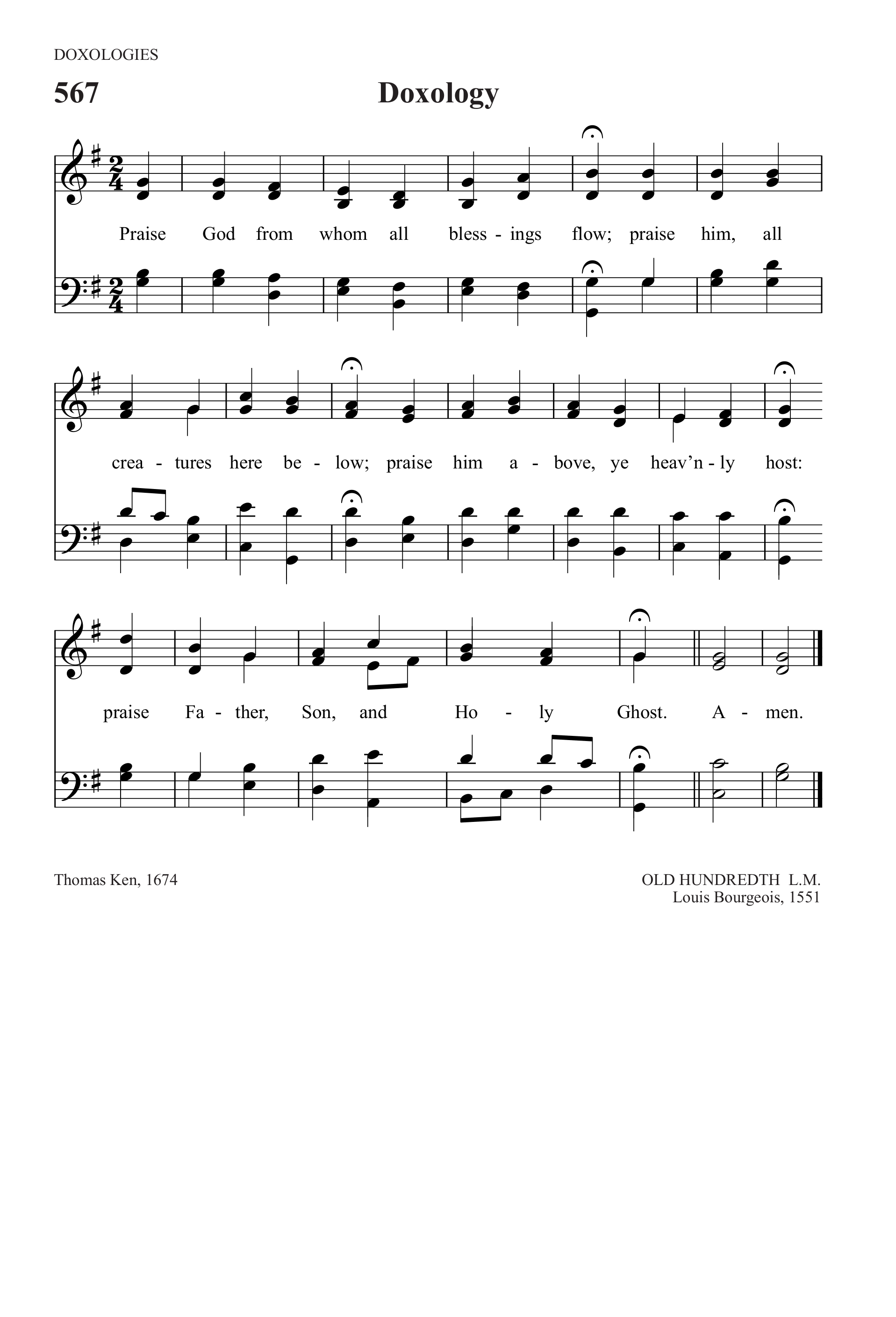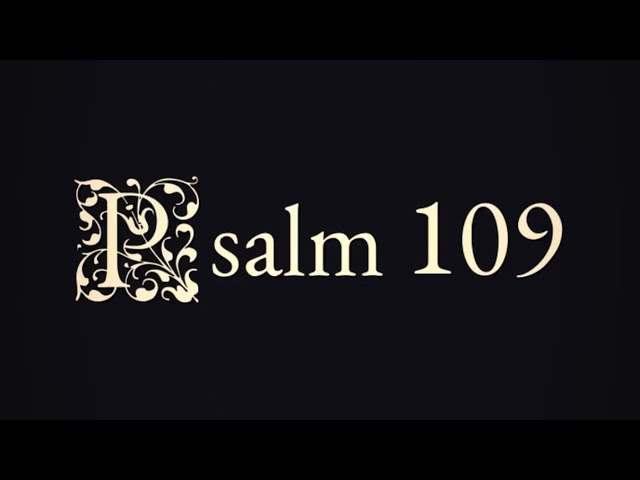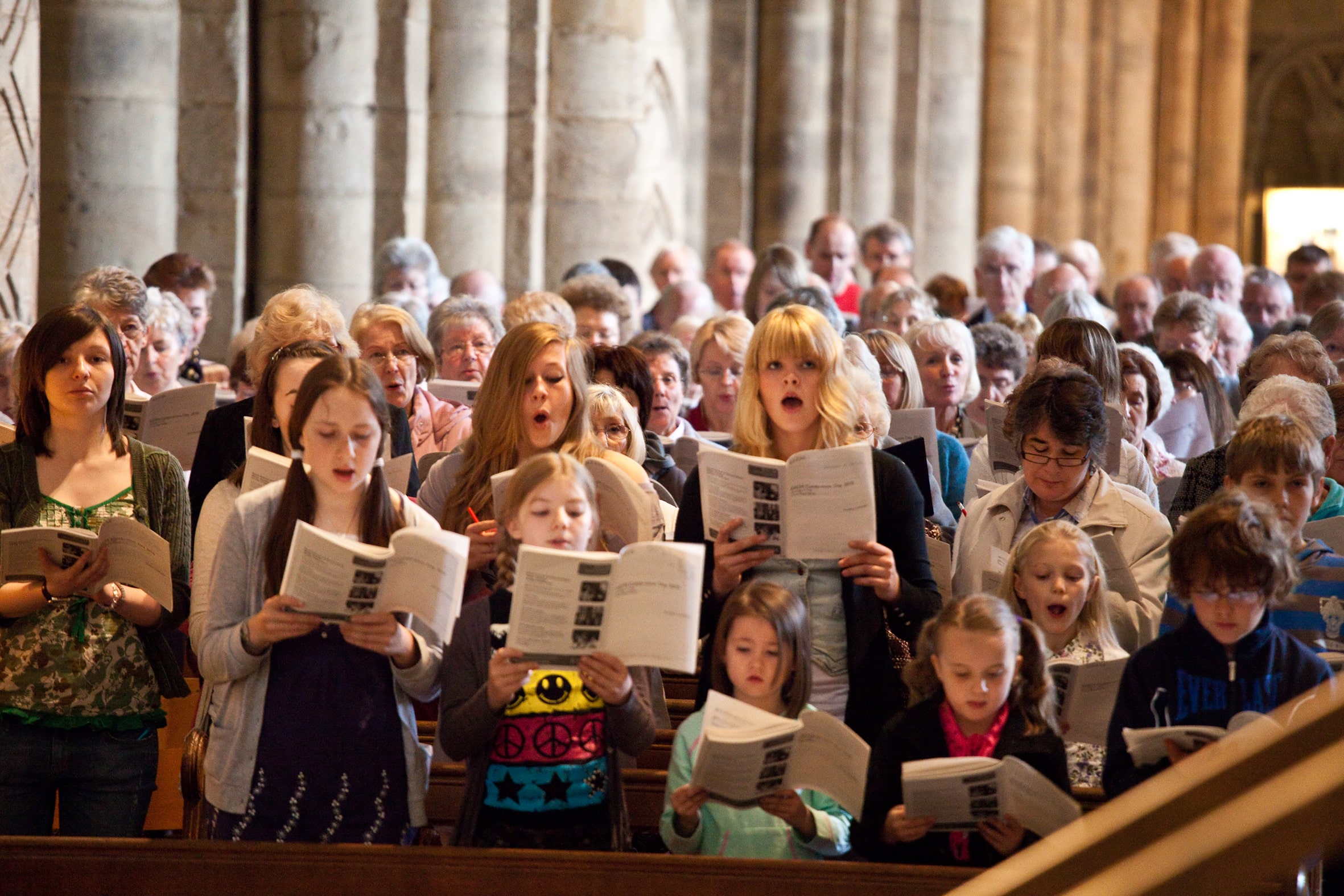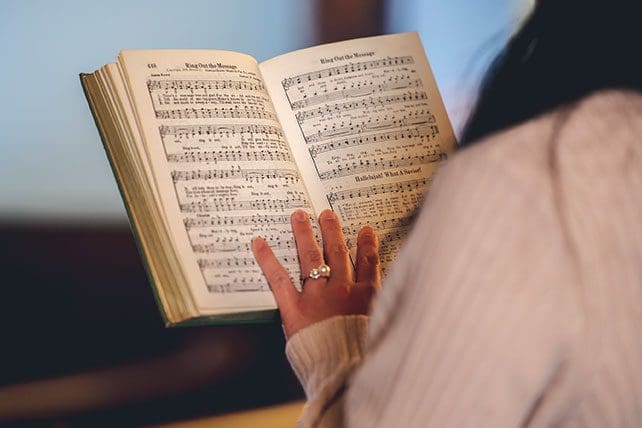Doxology (Praise God From Whom All Blessings Flow)
By Thomas Ken
Lyrics
Praise Him, all creatures here below;
Praise Him above, ye heav'nly host;
Praise Father, Son, and Holy Ghost.
A-men.
Bible Reference
Ephesians 1:3
About This Hymn
“I will praise thee, O Lord my God, with all my heart: and I will glorify thy name for evermore.” — Psalm 86:12 (KJV)
For over three centuries, the four simple lines of the Doxology have echoed through church halls and sanctuaries, becoming one of the most universally sung pieces of Christian music in the English-speaking world. Each Sunday, congregations around the globe lift their voices in unison to sing this concise, yet powerful, ascription of praise. It has often been observed that the Doxology has taught more people the doctrine of the Trinity than all theological treatises combined. Frequently referred to as the “Protestant Te Deum Laudamus,” the Doxology remains one of the most enduring hymns of worship in Christian tradition.
The words of the Doxology were penned by Thomas Ken, a devout and courageous Anglican bishop of the seventeenth century. Born in 1637 in Little Berkhampstead, England, Ken was orphaned at a young age and raised by his older sister and her husband, Izaak Walton, a well-known writer and fisherman. Ken was educated at Winchester School and later at Oxford University, eventually being ordained into the Church of England in 1662. His ecclesiastical career was marked by boldness and moral conviction. He initially served as chaplain to the Bishop of Winchester and, in 1679, was appointed chaplain to the English court in The Hague. However, Ken’s fearless denunciation of moral corruption at the Dutch royal court led to his dismissal within a year.
Returning to England, Ken found favor with King Charles II, who appointed him as one of his personal chaplains. Despite the king’s notoriously immoral lifestyle, Ken did not hesitate to call out his sovereign’s sins from the pulpit. Strikingly, the king admired Ken’s courage and referred to him as “the good little man.” He is reputed to have remarked, “I must go in and hear Ken tell me my faults,” when attending chapel. In time, Charles II appointed Ken to the bishopric of Bath and Wells.
Ken’s tenure as bishop was brief. Only twelve days after his consecration, Charles II died, and his successor, James II, a Roman Catholic, soon clashed with the principled Anglican bishop. Ken, along with six other bishops, refused to comply with James’s Royal Declaration of Indulgence, which sought to extend religious liberty to Catholics. As a result, he was imprisoned in the Tower of London. Though acquitted, Ken was later removed from office by William III in 1691. He spent the remainder of his life in retirement with his friend Lord Weymouth at Longleat, in Wiltshire, where he passed away in 1711 at the age of seventy-four. The historian Thomas Babington Macaulay praised him as one who came as close to Christian perfection “as human weakness permits.”
Thomas Ken was also a pioneering figure in English hymnody. At a time when only metrical psalms and scriptural canticles were permitted in worship, Ken advocated for original hymns of praise. In 1673, he published a devotional guide for the students of Winchester College, titled A Manual of Prayers for the Use of the Scholars of Winchester College. In this manual, Ken included three hymns intended for daily use: “Morning Hymn,” “Evening Hymn,” and “Midnight Hymn.” Each concluded with the same closing four lines—the text now universally recognized as the Doxology:
Praise God, from whom all blessings flow;
Praise Him, all creatures here below;
Praise Him above, ye heavenly host;
Praise Father, Son, and Holy Ghost.
Ken’s “Morning Hymn” became especially cherished. Its opening stanzas reflect both the devotional spirit and moral earnestness that marked his life:
Awake, my soul, and with the sun,
Thy daily course of duty run;
Shake off dull sloth, and early rise,
To pay thy morning sacrifice.Direct, control, suggest, this day,
All I design, or do, or say;
That all my powers, with all their might,
In Thy sole glory may unite.
It is said that Bishop Ken would sing this hymn each morning to the accompaniment of his lute, using it as part of his personal worship and morning devotion.
The now-famous melody most commonly associated with the Doxology is “Old Hundredth,” arguably the most widely sung tune in Christian hymnody. It was either composed or arranged by Louis Bourgeois, a French musician born around 1510 in Paris. In 1541, Bourgeois moved to Geneva, Switzerland, where he became a leading figure in John Calvin’s Reformation efforts. There, he was entrusted with the monumental task of composing music for the Genevan Psalter, a collection of metrical psalms. Completed in 1562, this Psalter played a central role in the worship of Reformed churches.
The melody that became “Old Hundredth” was originally paired with a French paraphrase of Psalm 134. It appeared in the Anglo-Genevan Psalter of 1551 and was later matched with William Kethe’s English version of Psalm 100, “All People That on Earth Do Dwell.” As a result, the tune became known as “The Hundredth.” When a new Psalter by Tate and Brady was published in 1696, the designation “Old” was added to distinguish it from more recent musical settings, thereby giving us the name “Old Hundredth.”
Together, the text of Thomas Ken and the melody of Louis Bourgeois have formed a lasting union of doctrine and doxology, music and theology. The Doxology continues to lift hearts in praise and remains a powerful reminder of the eternal glory due to the Triune God—Father, Son, and Holy Ghost.


📬 Subscribe to Our Devotional Updates
Receive weekly hymns, devotionals, and website features directly in your inbox.
Hymn Information

- Category: Hymn
- Author/Writer: Thomas Ken (1674)
- Added: June 12, 2025
- Last Updated: June 12, 2025
- Views: 4715
MIDI File
More Hymns by Thomas Ken
Popular Hymns
Recent Blog Posts
Popular Blog Posts
Visit Us on Social Media
Latest from X (Twitter)
Tweets by HymnalLibraryLatest from Facebook
Latest on YouTube
Daily Bible Verse
Disclaimer
The hymns, sheet music, MIDI files, and related content on this website are provided for educational and research purposes only.
- Public Domain: Many of the hymns featured here are in the public domain and may be freely used.
- Copyrighted Works: Some hymns may still be under copyright protection. Where applicable, permission has either been requested from the copyright owner, or the content is shared under the principles of fair use for educational purposes.
⚠️ Important Notice: If you wish to reproduce, distribute, or use any copyrighted hymn beyond personal study or educational use, you must obtain permission directly from the copyright holder. This website does not grant any rights for commercial use yet.
If there is any other question please address it to us in our Contact Page, for further assistance. Thank you for using the site. May God Bless You.












